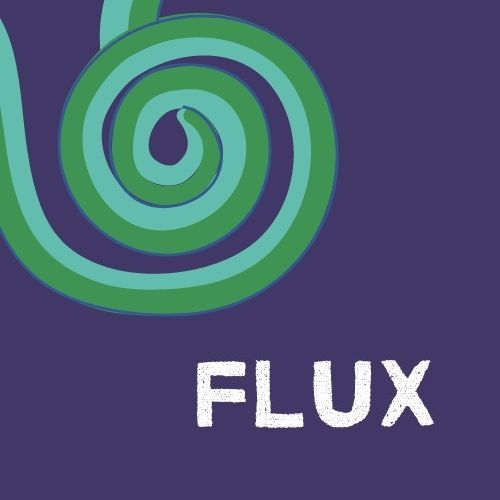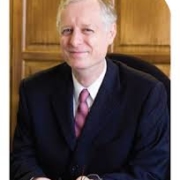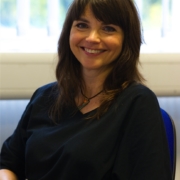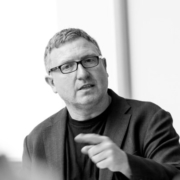River of Development/Melawan Lupa
Aizuddin Mohamed Anuar
 Today we air the next episode of Flux. a FreshEd series where graduate students turn their research interests into narrative-based podcasts. This episode was created by Aizuddin Mohamed Anuar, who recently graduated with his PhD from Oxford and is now a lecturer in education at Keele University. In his Flux episode, Aizuddin problematizes the meaning of development. Is development always a forward motion? Or does it weave side to side like a river? And how does development get written onto our lives? Is it always bad? Is it always good? Aizuddin meanders through these questions, connecting family memory to the development of Malaysia.
Today we air the next episode of Flux. a FreshEd series where graduate students turn their research interests into narrative-based podcasts. This episode was created by Aizuddin Mohamed Anuar, who recently graduated with his PhD from Oxford and is now a lecturer in education at Keele University. In his Flux episode, Aizuddin problematizes the meaning of development. Is development always a forward motion? Or does it weave side to side like a river? And how does development get written onto our lives? Is it always bad? Is it always good? Aizuddin meanders through these questions, connecting family memory to the development of Malaysia.
Today’s episode was created, written, produced, and edited by Aizuddin Mohamed Anuar. Johannah Fahey was the executive producer and Brett Lashua and Will Brehm were the producers.
Voices:
Narrator, Inner monologue, Translation of Mak, Willard C. Bush: Aizuddin Mohamed Anuar
Long: Nazmi Anuar
Joint reading from text: Nazmi Anuar and Ahmad Akif
Mak: Noraini Ahmad
Young people: Students of SMK Padang Midin, Malaysia (courtesy of their English teacher, Mr. Pravindharan Balakrishnan)
Music and Sounds:
Acoustic guitar compositions (Blues Sungai Seluar, Hujan Pagi, Menyusuri Sungai Jelai, Blues Jambatan Gantung, Bunga Cengang, Balada Kilang Rokok): Ahmad Black
Link: https://ahmadblack.bandcamp.com/releases
Camera Click Sound Effect by Soundstripe
Link: https://app.soundstripe.com/sfx/63925
Chainsaw Sound Effect by InspectorJ
Link: https://freesound.org/people/InspectorJ/sounds/418042/
Clock Ticking Sound Effect by Soundstripe
Link: https://app.soundstripe.com/sfx/32756
Construction Site Sound Effect by Soundstripe
Link: https://app.soundstripe.com/sfx/198
Critters in the rural environment: Recorded by Aizuddin Mohamed Anuar
Dial-up Internet Sound Effect by Free Sounds Library
Link: https://www.freesoundslibrary.com/dial-up-internet-sound/
Drilling Rig Sound Effect by fkunze
Link: https://freesound.org/people/fkunze/sounds/407454/
Elephant Sound Effect by geronimo83
https://freesound.org/people/geronimo83/sounds/103117/
Elevator opening and going up: Recorded by Aizuddin Mohamed Anuar
Gas Flaring and Fire Sound Effect by Soundstripe
Link: https://app.soundstripe.com/sfx/3669
Hammer on Metal Sound Effect by Soundstripe
Link: https://app.soundstripe.com/sfx/39457
People Chattering Sound Effect by Breviceps
Link: https://freesound.org/people/Breviceps/sounds/465699/
Thunder and Rainfall Sound Effect by Soundstripe
Link: https://app.soundstripe.com/sfx/48305
Tiger Sound Effect by Soundstripe
Link: https://app.soundstripe.com/sfx/62307
Traffic sounds in Kuala Lumpur: Recorded by Aizuddin Mohamed Anuar
Underwater Bubbles Sound Effect by Soundstripe
Link: https://app.soundstripe.com/sfx/34316
Various River and Water Sounds: Recorded by Aizuddin Mohamed Anuar
Narrator:
The photo is slightly out of focus, the colors seem rosy.
My grandfather, Tok, is sitting at his desk, intently writing something as he is captured in profile. His dark blue collared shirt is tucked into a chequered white and grey sarong. His toes are pressed neatly on the linoleum flooring–dark green with geometric patterns–his heels raised in the air. A stack of books covers the far end of the table, and on the shelves in front of him are small boxes lined neatly against the wall. Cigarettes? Matchboxes? A calendar hangs on the wall–I must ask someone what year this photo was taken…Where was Mak at this time? How long still until I was born? So many questions…
Tok was a government school teacher. I think Tok was an agent of development, bringing progress across the land.
In the wake of independence from the British in 1957, mass education became crucial for nation building and industrialization in the newly postcolonial Malaysia. Teachers like Tok, employed by the government, served as implementing agents all over the country.
Where was Tok teaching at this time?
I turn to Mak, his daughter, my mother, for more insights:
Mak (in Bahasa Melayu)
Translation of Mak:
Chronologically, Mak is recounting the names of schools where Tok served throughout his career. She lists the names of places: Kampung Gua, Tanjung Gahai (where he met my grandmother, Wan).
After he married Wan, Tok moved to Ulu Tembeling, teaching at a few schools. Then Kuala Medang, then back to Tanjung Gahai and finally, Padang Tengku, where he retired.
Narrator:
I am thinking about Tok and Mak, about time and place. I want to follow their stories, braid them with my own, remember Tok, a hovering phantom, by following our stories, by tracing them as they flow across three generations along the river of development.
From one generation to the next, like the River Jelai that flows beside Tok and Mak’s homes, once our bathing pool, these stories cling to our skin.
I am trying to melawan lupa—to resist the act of forgetting, to keep Tok alive somehow—so I turn to my own memories of Tok, to Mak’s memories of Tok, to my own memories of Mak.
Generational memories.
These stories are rooted in histories that are specific to my family. But they are also situated in Malaysia’s broader story of becoming. Our stories across three generations are also Malaysia’s stories of development, of progress…
Internal monologue:
I remember that there used to be no phone signal in this area, now we connect to Facebook and send WhatsApp messages as if we always could, as far back as we remember. Before, we had to leave the car on the other side of the river and take a boat across to Tok’s house. I was always scared of falling in the deep water, of drowning. And now we drive our car across a two-lane concrete bridge and reach Tok’s house seamlessly, without having to switch from a car to a boat and without having to think about drowning.
The River Jelai is murkier now, its colour like thick milk tea. There is no thought of playing in those waters anymore.
Narrator:
There’s a certain rhythm to the music you can hear in the background, like a current that sweeps you gently forward. My eldest brother Long – the first grandchild in our family – composed the music and that is him that you can hear playing the guitar.
Long:
I remember that there was a photo of him as a young man, as a young teacher and underneath it was written “Ahmad Black”. Again, I’m not sure whether I’m imagining this or…I think it actually exists, you can find the photo somewhere. So, I was imagining that what if this Ahmad Black was actually Tok’s kind of…Because he was traveling throughout rural Pahang often, of course at that time by the river, using the river as a means of transportation. But he was traveling around because he was teaching. So, I was imagining that in addition to being a teacher he was some sort of a, kind of chronicler. Someone who was chronicling obscure, rural Pahang through this persona of Ahmad Black. So, imagining him as a kind of Blues musician, or something like that, somehow carrying a guitar, walking around in the depths of Hulu Pahang, and making these songs which are evocative of that kind of locality.
Narrator:
The photo is slightly out of focus, the colours seem rosy.
Long:
Tok was always sitting by his desk next to the window and I remember if you go back, balik kampung, if you enter the house on the front, if you open the door he’s usually always there sitting, writing at his desk. He’s always writing and making notes…and his notebooks and his journals are very neat.
Narrator:
Being the eldest grandchild, Long was the closest to Tok among the grandchildren. I remember those hot monsoon afternoons of our childhood, all the windows thrown open to catch the breeze. Long would lay on the floor with Tok in his room, both of them reading aloud from historical and religious texts.
Together, their voices floated through that house on stilts as the rest of us dozed off, exhausted from the morning spent running around the vast compound.
Tok’s house rests on a plot of land passed down from one generation to the next…in a village called Tanjung Gahai, a settlement on a prominent bend of the River Jelai…that flows into the district of Kuala Lipis, the colonial capital of the state of Pahang from 1898 to 1955, before it was moved eastward to Kuantan, to face the South China Sea.
The state of Pahang is the…
Willard C. Bush:
Largest and probably the most primitive State of the Malay Peninsula. Rolling plains of elephant grass. Thousands of square miles of almost impenetrable jungle…Sluggish rivers canopied by the interlaced tops of forest giants…Rain-drenched nights and the roar of a man-eating tiger.
Narrator:
Pahang is described in 1938 by Willard C. Bush –the “mad Yank” manager of two rubber plantations—a white man’s mythologizing of the landscapes that Tok, Mak and I inhabit across time.
Willard C. Bush’s narrative is a conquest narrative, a frontier narrative.
Internal monologue:
Are Bush’s memories of Pahang more or less valid than mine? Should I reject them completely as those of a lone white man in possession of an orientalist gaze?
Narrator:
Let me rewrite this narrative of a wild, impenetrable country with my descriptions of the Pahang that I know based on my own memories and experiences.
The state of Pahang is the largest and probably the lushest state of the Malay Peninsula. Rolling plains of elephant grass…The elephant is taken as a symbol of state pride…
Mak (in Bahasa Melayu)
Translation of Mak:
Mak recalls a moment when Tok and my grandmother Wan were clearing their farmland to replant rubber saplings. While resting, Wan suddenly encounters an elephant—each startled by the sight of the other—and she hollers out for Tok. With his gun, Tok shoots into the air to drive away the lone elephant…
Narrator:
Thousands of square miles of verdant jungle supplying the fresh air we breathe and the natural symphony of critters…
Meandering rivers canopied by the interlaced tops of forest giants, provide connection and resources for living along its tributaries and deltas…Rain-drenched, cool nights bring restful slumber.
These might be hopeful, even romantic descriptions. Part of it is wishful or magical thinking on my end, especially in the context of so-called progress in Malaysia, which brings with its riches: monsoon floods, deforestation and extinction.
Stories of the roar of the Malayan tiger are passed down across generations, a big cat venerated on the country’s coat of arms.
Mak (in Bahasa Melayu)
Translation of Mak:
Mak tells me about my great grandmother, Moyang. One day, while Moyang was gardening late in the afternoon, she hears the roar of a tiger on the other side of the river. Hastily, Moyang packed up and shifted to her brother’s house on higher ground.
Internal monologue:
Those were the days when the other side of the river was thick jungle with hardly any human settlements. Hearing this story today makes it sound like a myth. Malayan tigers that numbered upwards of 3000 in the 1950s—mostly in the state of Pahang—have dwindled to less than 150 today, their habitat lost to agriculture projects.
Narrator:
Today, Malaysia is one of the most urbanised countries in Southeast Asia. In the urban capital of Kuala Lumpur, towers of commerce pierce the heavens—beacons of wealth and technological prowess.
Pembangunan sebagai bangunan.
Development translated as the construction of buildings.
High-rise condominiums are the embodiment of development projects, densely packed, almost uniform in their aesthetics of glass, concrete, and steel. Highways and flyovers skirt and snake throughout the city. They carry cars that bleat and bump in congested traffic, rushing towards the next destination.
When it rains in the afternoons, the waters rise in a flash, trapping the part-time inhabitants who are eager to leave at the end of office hours. The city comes to a standstill…nature takes her revenge.
Malaysia’s National Laureate, Usman Awang speaks to the perils of development on the environment at the edge of the city, through this poem titled Balada Terbunuhnya Beringin Tua di Pinggir Sebuah Kota, translated as The Ballad of the Death of an Old Fig Tree at the Edge of a City. The tree meets its demise due to its enemy, a plan called Pembangunan, the Malay term for development.
The tree sings its swan song…
Long:
Sampai sekarang, tiap senjakala lembayung petang
dengarlah suara beringin mengucapkan pesan:
Selamat tinggal, selamat tinggal wahai awan
Selamat tinggal matari selamat tinggal bulan
Selamat tinggal kupu-kupu sayang
Selamat tinggal wahai burung-burung bersarang
Selamat tinggal anak-anak bermain riang
Namaku beringin pohon tua yang terbuang
dimusuhi rancangan bernama Pembangunan
[Translation]
Until now, every dusk that shades the evening
Hear ye the fig tree conveying its song:
Farewell, farewell dear clouds
Farwell sun, farewell moon
Farewell darling moth
Farewell dear birds nesting
Farewell children playing with joy
My name is the old fig tree, abandoned
The foe of the plan called development
Narrator:
Does progress only happen by moving forward from the past into the future- out of a “primitive” state into one that advances ahead? Out of a state of nature towards a state of glass and steel? Towards towers that scrape the sky…
Is progress more complex? Could progress also happen by turning back, by exploring a bend in the river, by melawan lupa, returning to a past one fears losing?
Although Tok passed away 10 years ago, we continue to remember him as a central figure in our lives. Long composes acoustic tracks, Mak tells and retells stories, I have dreams about Tok–he slips into my subconscious, almost becoming real again.
Internal monologue:
There is this dream I have—not while sleeping—maybe it’s a child-like hope, a projection? Tok is still alive, still out there somewhere on a long journey on foot, much longer than those walks we took when I was younger, accompanying him to Aki Akob’s house for a haircut. One day, he will return, appearing in the doorway to the kitchen. Then we’ll realise he is still/has been here all along…
Narrator:
The photo is slightly out of focus, the colors seem rosy.
Mak (in Bahasa Melayu)
Translation of Mak:
Tok is at his work desk. During this time, he was teaching at the primary school in Padang Tengku. This desk is where he does his work—updating his teaching logbook, marking students’ workbooks, doing some writing. This house is at the teachers’ quarters in Padang Tengku.
He is wearing a chequered sarong with a black t-shirt. This is his usual attire at home. Mak thinks this photo was taken in the 70s, when she was in the local secondary school. Maybe circa 1971 or 72.
Narrator:
I think Mak is an agent of development, bringing progress across the land.
Internal monologue:
In the 1980s, after bouts of secondary and tertiary education, a young woman secured a job working as a technician in a regional development project called DARA—meaning virgin—in Southeast Pahang. There, she was part of a team that explored the frontier—developing a million hectares of land south of the Pahang River, turning thick jungle into agricultural land and housing. She lived in a place called Bukit Ibam.
It is in Bukit Ibam that the young woman gave birth to a son in 1988, and as her time with the project came to a close, she migrated to the nation’s capital of Kuala Lumpur, to be absorbed by the federal Department of Works. The paths of the daughter—now a mother—and the son, intersect in a project called progress.
Narrator:
The river of development continues to flow, from one generation to the next. Its waters pass down from Mak to me over time, carrying me on my way. But where is this river taking me?
I think I am an agent of development, bringing progress across the land…
After studying engineering like Mak—a subconscious parallel? — I was employed by the national oil company, PETRONAS, that funded my higher education. Like Mak, I too served the master that paid for my tertiary education.
I worked for a national company that built riches by extracting and processing natural gas and petroleum. To do this, oil platforms were constructed in the ocean, bolted to the seabed. Traditional, seaside villages were displaced and cleared to make way for large-scale petrochemical complexes, the night sky lit up constantly as excess gas burned off.
Forests were razed despite protests from indigenous peoples, so that lines and lines of gas pipes could snake through them like roots, like veins connecting an energy network that served as the country’s lifeblood of economy and prosperity.
At the same time, the company has become a source of national pride, represented concretely by the PETRONAS Twin Towers standing tall in the middle of the commercial capital, Kuala Lumpur.
Long:
I remember watching live on television when they lifted the bridge that connects the two towers in place. I was like…woah, somehow, we’ve made it. As a country we now have the tallest building in the world. But then as I studied architecture, as you become more and more critical of what is built around you and of why things are built, I guess I became a bit more sceptical of the whole thing, you know? The idea of the twin towers is that you’re always looking up, you don’t realise the kind of poverty…and the reality on the ground is forgotten when you’re always looking up at the top of the twin towers.
Narrator:
During my stint with this organisation, I was part of the team tasked to deliver corporate philanthropy projects in education.
Internal monologue:
I guess I feel a bit torn. I mean I’m so grateful that I received funding from the organisation to go to university. In return, I worked for the organisation and got to learn a lot about education on the many visits to rural schools that I took part in. We funded school reform and vocational programmes, gave out back-to-school items, organised science camps. At the same time, we combed through our press releases to make sure they stated how much we had helped the country—how many scholarships, how many schools adopted, how many partners on the ground, how much money was invested. Was this development? Or was this merely a cynical PR stunt?
Narrator:
5 years. That is how long I served the national oil company.
What kind of work would I do next? And…I wondered if it would matter more than what I had left behind?
Where would the river carry me?
In 2017, I arrived at the University of Oxford and enrolled in a masters degree in Comparative and International Education. Eventually, I stayed in the academy and enrolled in a PhD programme.
The cool misty mornings…
The rolling hills backdropping the school compound…
The sleepy town a short drive away…
There, I trailed the future and was reminded of my own past…of my own schooling days 15 years prior.
Finding myself once more at a rural school, this time as a researcher, not as an agent for the oil company, felt like deja vu, but not quite…
Internal monologue:
What’s different this time around? Time…I guess? As a researcher, I wanted to be less hasty, less touch-and-go, less concerned about the best PR angle. This time, I told myself, I can spend a few months in this place. Maybe there’s a chance that I’ll learn something more compared to those work trips.
I take my time, but there’s so much more time ahead…
Narrator:
The generation that will outlast me…
These young people will invent the future.
I will (have to) let go, though I try hard not to forget.
I am listening, I am learning…
Young people:
States like Johor, the schools there are using thumbprint technology to track student attendance. Here, we don’t have it. If we do development here we won’t be too excluded from others right?
For example, some people are happy when they are rich. But even if you are rich but don’t have a family to spend time with, then what is the use? How do you become happy then?
There is a river to bathe in. My hope is to maintain the area around here. Because it’s beautiful. It’s chilly. It’s a spacious area, a lot of hills and trees.
Narrator:
As they describe their aspirations to me, the young people here are looking outwards, yearning for something more. They speak of spending time with family, of happiness, of their care for the environment.
Like these young people, I too enjoyed bathing in the river in my teenage years. River Jelai…I close my eyes and recall the green, translucent waters, the swathes of sand under my feet, the sculptures of driftwood in mysterious shapes. We tread on common ground—the young people and I—even if only in my mind.
Mak moved back permanently to her ancestral hometown in Kampung Tanjung Gahai after she retired in 2014, living in a house designed by Long, next to Tok’s house. It seems that the river doesn’t always carry us to the city as our final destination.
Mak (in Bahasa Melayu)
Translation of Mak:
Mak feels it has been too long that she lived in Kuala Lumpur—the traffic jams, the hustle and bustle was becoming too much.
Growing up, she recalled a big flood had happened only once, in 1971. But now, in her era of retirement, a big flood hit the newly built home in 2014…and then once more, recently in 2021.
There is grief in encountering the flood in old age, but now that she knows what to expect, the grief is tempered. She endures the elements, and she is ready…
Narrator:
One generation to the next …
three generations along the river of “development”
never flowing in a single direction
turning back, seeking roots, memories, and connections.
Even if the tides are dangerous, imperfect, and uneasy…
Even if the tides are no longer familiar, predictable, and welcoming.
Outro:
In Bahasa Melayu, Mak tells me about the sounds of nature around the house and the locality, which have largely remained the same over time.
Want to help translate this show? Please contact info@freshedpodcast.com
Related Guest Publications/Projects:
The Towering Petai Tree Stories
Identity, Access and Relations in Education Policy Research
Related Resources
The Genealogical Imagination: Two Studies of Life over Time
Decolonial Feminist Research: Haunting, Rememory and Mothers
Cultural Identity and Diaspora
Political Independence and Educational Opportunity in Peninsular Malaysia
Exploring the Spatial Dimensions of Rural Development Models in Malaysia (1957-2007)
Education and National Development in Malaysia
Towards sustainable development? The evolution of environmental policy in Malaysia
Development and the Environment in ASEAN
Managing Natural Wealth: Environment and Development in Malaysia
A Review on Sustainable Development Implementation in Malaysia
Development Discourse and Global History: From colonialism to the sustainable development goals
Progressing Towards Incoherence: Development Discourse since the 1980s
The Jengka Triangle , West Malaysia: A Regional Development Project
Overview of Regional Development in Malaysia
The Petronas Twin Towers and/in Contesting Visions of Development in Contemporary Malaysia
Rights Based Approach to People and Forests
Malaysia’s Green Movement: Old Continuities and New Possibilities
The Struggle for Control of Solomon Island Forests
Deforestation and Flooding in Malaysia
Related Resources (Bahasa Melayu):
Seorang Penyair, Sebuah Benua Rusuh: Biografi Usman Awang oleh Muhammad Haji Salleh
Multimedia:
PETRONAS Human Capital Investments
Flux Inspiration (Spotify Playlist by Aizuddin Mohamed Anuar)
Save Malayan Tiger: It’s Now or Never
Have any useful resources related to this show? Please send them to info@freshedpodcast.com









